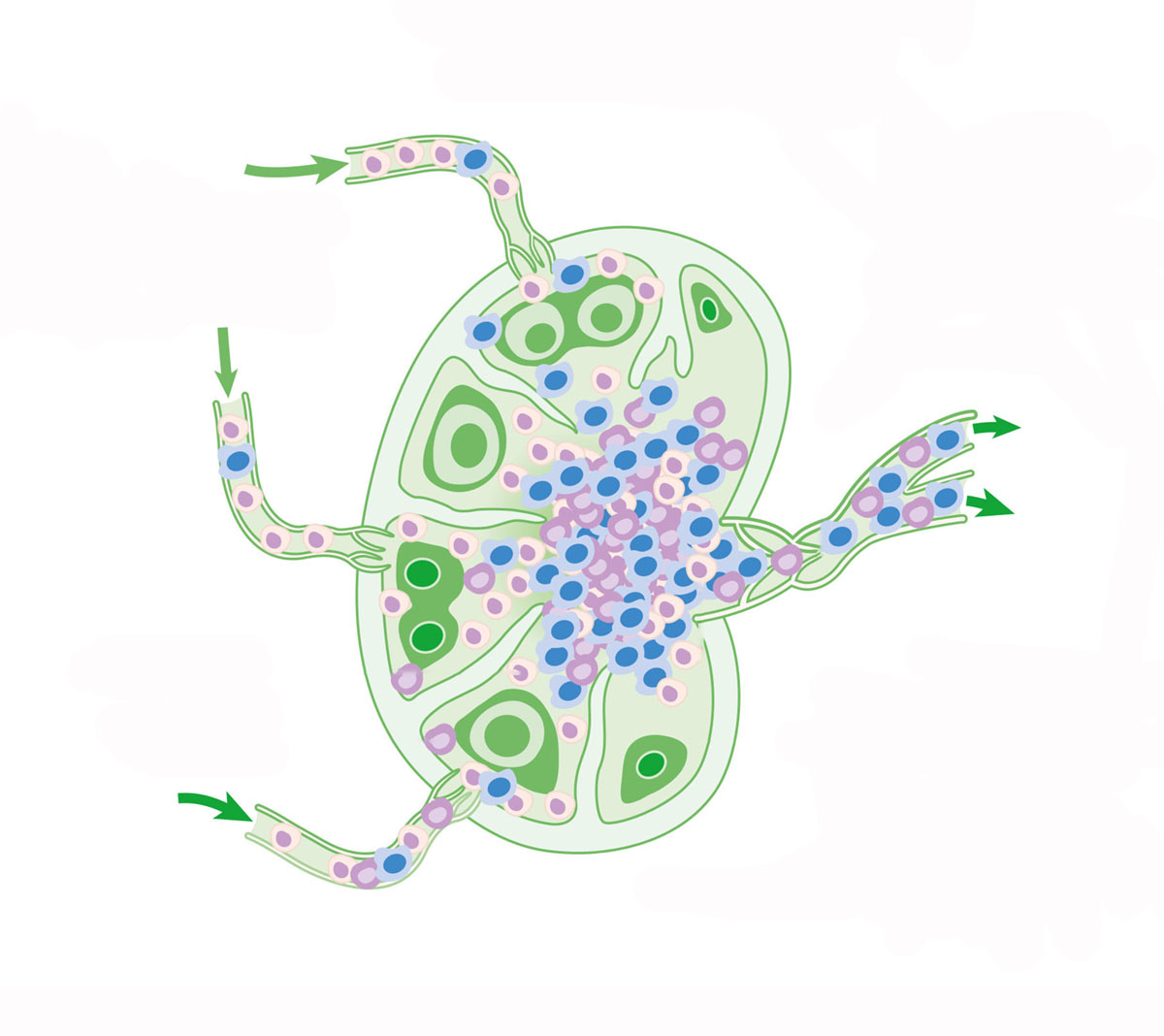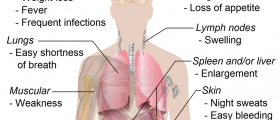
Lymph node cancer, also known as the lymphoma or lymphatic cancer is a cancer of the lymphatic system which is the part of the immune system. It occurs when white blood cells within lymph glands start to abnormally grow and multiply. This type of cancer can be accountable for 5% of all cancers and it is mostly seen in men. People aged between 15 and 34 years old as well as those over 55 years old are the most susceptible to lymph node cancer. Cause of the lymph node cancer is unknown but there are some factors that may increase the risk of this cancer. They include heredity, exposure to certain chemicals such as herbicides and pesticides, use of immunosuppressive medications and infections with certain viruses.
Lymph Node Cancer TypesTwo main types of lymphoma are: Hodgkin’s disease and non-Hodgkin’s lymphoma.
Hodgkin’s Disease
Hodgkin’s disease is a rare form of lymph node cancer, characterized by the presence of distinctive abnormal cells called Reed - Strenberg cells. Even though Hodgkin’s disease is relatively aggressive type of cancer it can be easily treated. Symptoms of Hodgkin’s disease include swollen lymph nodes, night sweats, unexplained fever and weight loss, fatigue and poor appetite.
Non-Hodgkin’s Lymphoma
Non-Hodgkin’s lymphoma accounts for about 80% of all lymphomas. There are several subtypes of this cancer. Risk of developing non-Hodgkin’s disease increases as people get older. It is most common in people 60 years of age and older. This type of lymph node cancer causes the same symptoms as Hodgkin’s disease. That includes night sweats, fever, constant fatigue, swollen lymph nodes and unexplained weight loss. In recent years, occurrence of non-Hodgkin’s lymphoma has significantly increased and it has been estimated that one in fifty-two men and one in sixty-one women in the United States may suffer from this type of lymph node cancer.
Treatment for Lymph Node CancerGenerally, if lymph node cancer is caught in early stages there is a greater chance of successful treatment. Hodgkin’s disease is commonly treated with chemotherapy and radiotherapy. The treatment may include stem cell transplantation as well. Treatment for non-Hodgkin’s lymphoma is the chemotherapy but radio therapy and monoclonal antibody therapy may be added if required. In advanced stages of non-Hodgkin’s lymphoma, patients may need bone marrow transplantation. Steroids can be used in combination with chemotherapy in treatment of some cases of lymph node cancer. Steroid medications are given intravenously, usually at the same time as chemotherapy.

















Your thoughts on this
Loading...